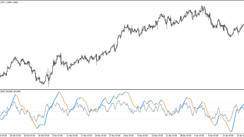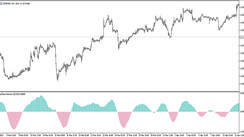A Shift in Trading Indicator Prominence
Historically, traders have relied on key technical indicators to analyze past price data and forecast future price shifts. While there is a vast range of available indicators, some have taken precedence in popularity over the years. However, these once predominantly used indicators have seen a decrease in popularity of late.
Notable indicators that have seen a slump in usage include:
- the moving average
- convergence divergence (MACD) indicator,
- the relative strength index (RSI) indicator,
- the stochastic oscillator indicator, the Bollinger bands indicator,
- Fibonacci retracement indicator
Reasons for Reduced Popularity
Several factors have contributed to the decreased popularity of these indicators. One crucial factor is their widespread usage, which often leads to diminished efficiency as more traders begin employing the same indicators. Secondly, these tools have been in the trading sphere for a significant amount of time, and traders have become adept at navigating around them. Moreover, the development of fresh, more effective indicators has resulted in older ones losing their attraction.
Emerging Leading Indicators
To replace the less popular indicators, traders are now turning toward newer tools including:
- Ichimoku Kinko Hyo indicator,
- volume-weighted average price (VWAP) indicator,
- the Keltner channels indicator,
- the Aroon indicator,
- the Parabolic SAR indicator
Preferred Assets for Modern Indicators
While these indicators can be employed across various assets, they exhibit optimum performance when used with liquid, high-volatility assets. Assets that best complement these tools include stocks, currencies, commodities, and cryptocurrencies.
Expert Perspectives on the Indicator Switch
The trading community has varying views on the declining trend of once-dominant indicators. Some experts opine that these indicators retain their efficacy, provided they are used harmoniously with other indicators. Conversely, some professionals argue that these indicators have lost their potency and should be sidestepped.
Final Thoughts
While former popular indicators still hold some relevance in the trading industry, they are no longer as dominant as in the past. The trading world is now directed towards newer, more efficient indicators. As market players, it is crucial to keep abreast with the emerging trends and evolution in trading indicators.





